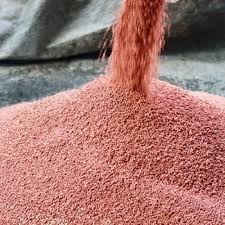
Dec . 04, 2024 07:29 Back to list
Water Soluble Fertilizer Market Prices for MKP 00-52-34 and Other Products
Exploring the Market for MKP (Mono Potassium Phosphate) Fertilizer Prices and Applications
In recent years, the agricultural sector has witnessed significant changes in the way fertilizers are marketed and utilized, particularly with the rise of water-soluble fertilizers. Among these, Mono Potassium Phosphate (MKP) has gained considerable popularity due to its effectiveness and versatility. This article delves into the current market trends for MKP fertilizers, focusing on prices, applications, and the factors driving demand.
Understanding MKP Fertilizer
Mono Potassium Phosphate (MKP) is a high-quality water-soluble fertilizer that plays a critical role in plant nutrition. It contains two essential nutrients potassium (K) and phosphorus (P), which are vital for plant growth. MKP is especially beneficial during the flowering and fruiting stages of plant development, making it particularly popular among horticulturists and growers of high-value crops like fruits, vegetables, and ornamental plants.
Current Pricing Trends
As of 2023, the pricing of MKP fertilizer can vary significantly based on several factors, including regional demand, production costs, and global agricultural trends. On average, the price of MKP ranges from $700 to $1,200 per metric ton, depending on the quality and supplier. Factors such as shipping costs, import tariffs, and the availability of raw materials can further influence these prices.
For instance, with rising energy prices and disruptions in global supply chains, the costs of producing MKP fertilizers have seen upward pressure. Additionally, geopolitical tensions and trade policies can create volatility in fertilizer markets, causing prices to fluctuate unexpectedly. Farmers and agricultural businesses have to stay informed about these trends to make timely purchasing decisions.
Applications of MKP Fertilizer
MKP is predominantly used in various applications due to its solubility and compatibility with other fertilizers and nutrients. Its primary applications include
1. Hydroponics and Fertigation MKP is widely used in hydroponic systems and fertigation, where nutrients are delivered directly to plant roots through irrigation. This method allows for precise control over nutrient delivery, leading to enhanced crop yields.
2. Foliar Feeding MKP can be applied as a foliar spray, providing plants with essential nutrients that can be quickly absorbed through their leaves. This technique is particularly beneficial during critical growth stages and can help alleviate nutrient deficiencies.
buy mkp 00-52-34 fertilizer prices water soluble fertilizer

3. Soil Application Farmers apply MKP directly to the soil to improve its nutrient profile, benefiting crops that require high potassium and phosphorus levels.
4. Seed Treatment MKP can also be used as a seed treatment to promote early root development, ensuring a strong start for emerging plants.
Factors Driving Demand for MKP
Several factors are contributing to the growing demand for MKP fertilizers in the agricultural market
- Increased Crop Yields With the global population on the rise, there is an urgent need for higher agricultural productivity. MKP helps achieve better yields due to its nutrient content and solubility.
- Shifts Toward Sustainable Agriculture As growers seek sustainable practices, the use of water-soluble fertilizers like MKP aligns with this goal by facilitating efficient nutrient uptake and minimizing nutrient leaching.
- Expansion of Controlled Environment Agriculture The growth of controlled environment agriculture (CEA) systems, such as greenhouses and vertical farms, has further fueled the demand for MKP due to its compatibility with various growing systems.
- Global Trade Dynamics Changes in trade agreements and tariffs can influence the availability and pricing of MKP fertilizers. Understanding global trade dynamics is essential for producers and consumers alike.
Conclusion
In conclusion, MKP fertilizer stands out as a key player in modern agriculture, providing essential nutrients that support plant growth and productivity. Despite the fluctuations in prices driven by market dynamics, its applications in various farming practices remain indispensable. As the agricultural landscape continues to evolve, understanding the market trends and the potential of MKP will be crucial for farmers and agribusinesses aiming to enhance their competitive edge. With continued research and innovation, MKP's role in sustainable agriculture is likely to expand, ensuring food security in a changing world.
-
Premium Organic Manure Compost for Eco Gardens
NewsAug.01,2025
-
Organic 10-10-10 Fertilizer | Balanced Plant Nutrients
NewsJul.31,2025
-
Premium Amino Acid Fertilizer | Rapid Plant Growth Booster
NewsJul.31,2025
-
10 10 10 Fertilizer Organic—Balanced NPK for All Plants
NewsJul.30,2025
-
Premium 10 10 10 Fertilizer Organic for Balanced Plant Growth
NewsJul.29,2025
-
Premium 10 10 10 Fertilizer Organic for Balanced Plant Growth
NewsJul.29,2025
